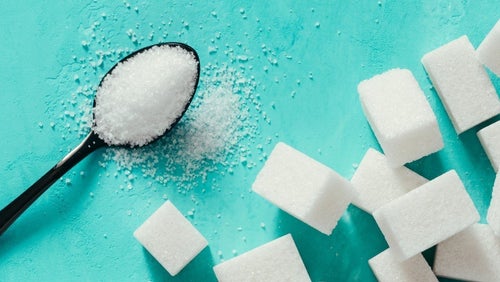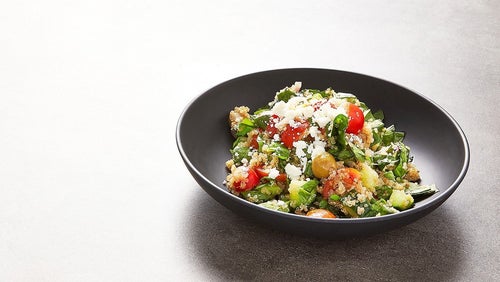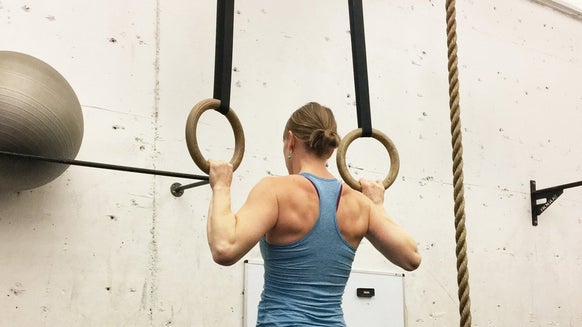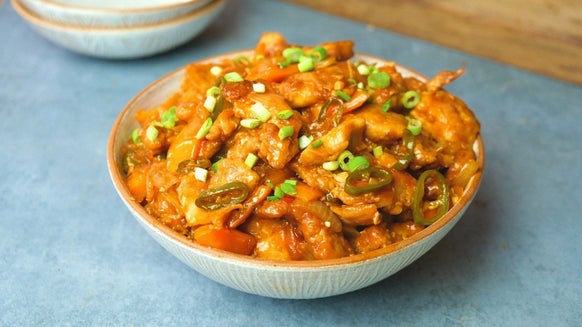What’s More Important For Weight Loss — Exercise Or Diet?

If there’s one subject that’s flooded with more opinion than fact, it’s how to effectively lose weight. From miracle diets to downright bizarre exercises, there’s so much conflicting information out there that it would have just about anyone questioning the approach.
In this article we’re going to shine some light on the topic by clarifying how weight loss works as well as answer the age-old debate “What’s more important for weight loss — diet or exercise?”

How weight loss works
Our body is essentially an organic machine that changes in response to what it encounters, what it consumes and what it expends.
Each and every second of the day our body is expending energy to keep us alive and healthy. It’s restoring and replacing cells, undergoing an immeasurable number of chemical processes at any given time, producing heat, moving and much, much more.
Your total daily energy expenditure (TDEE) estimate is calculated from four primary contributors — your basal metabolic rate, thermogenesis (the thermic effect from food), programmed exercise and non-exercise activity thermogenesis.
The foods we consume contains nutrients which can be broken down and used to produce energy to fuel our body. When we consume too much food this excess energy is stored.
When we don’t consume enough food our stored energy and other structures (sometimes muscle in times of severe deficiency) is broken down to produce energy.
Simply put, if you’re taking in less energy from food than the energy you’re expending, you will lose weight.
Exercise for weight loss
When we mentioned “what we encounter” this refers to external stimuli which can cause the body to adapt — exercise being the most notable of these.
This is important to highlight as not all excess food will be stored as fat. If your body is responding to a stimulus like exercise, nutrients may be partitioned into building new muscle tissue and or restoring broken down muscle too.1 Additionally, excess energy intake may be used to restore internal carbohydrate stores as these are seen as more valuable than additional fat storage.1
There’s a misconception that all weight increase is “fat”. However, it takes consistent overeating to actually store a tangible amount of fat. Daily changes in weight are likely down to changes in water (due to salt intake and food intake) and food travelling through the gut.
Long term changes in weight may be due to changes in lean muscle mass and even bone mass. The scales should not always be something to fear, nor should they be the sole indicator of your progress if you are focused on weight management.
Exercise vs. diet arguments
The main argument when it comes to diet vs. exercise is that it’s simply not practical to out-exercise a significant calorie surplus. Or, as you may have heard, “you can’t out-train a bad diet”.
In a practical sense, this is true — have you ever tried “burning off” a 1200kcal pizza? Good luck with the ten trillion burpees…
But, it’s not all as quite straightforward as that, as the amount of energy we get from food depends on the nutrient make-up of the food itself and how much we end up storing as fat would again depend on our stimuli and our body’s nutrient partitioning.
Feasibly though it’s easier to create a calorie deficit using your diet. You simply eat less than you would have before (or if you’re tracking, eating less than your maintenance).
How aggressive you choose to diet in this sense should depend on your goals and what you can tolerate. The greater the deficit the more rapid the weight loss but the more impact it will have on your hunger, performance, recovery, possibly lean mass and relationship with food.
The more conservative you diet, the longer it will take to lose weight, but the better a chance you have of preserving all the aforementioned factors as well as experiencing less in the way of hunger and cravings.
Why both are important
Whilst it’s easier to create a calorie deficit to initiate weight loss using your diet, both diet and exercise appear to be important for long term success (especially if your goal is to have a fit or defined physique).
Large scale analysis studies (meta-analysis) have looked at the combined data of weight loss programs comparing diet alone, exercise alone and a combination of the two.2
They found that whilst short-term diet and combined programs achieved similar results, the combined programs were the only ones to achieve successful long-term weight loss.
This highlights the importance of focusing on healthier overall behaviours rather than some extreme solution for short-term gain.
Yes, rapid initial weight loss may increase motivation, but it’s usually met with rapid weight regain (because most of said weight change is down to changes in water, intrinsic carbohydrate and food in the gut) which can be equally demotivating.
If you’re aiming for long-term weight loss then focus on developing a healthier outlook on both diet and exercise rather than one alone.
Diet may influence your weight and body fat the most, but you can’t forget the value of exercise in preserving and promoting lean muscle mass and protecting and promoting bone mass density.
Take home message
So, the answer to the original question “What’s more important for weight loss — diet or exercise?”, at least in my opinion, it has to be both.
There are many different factors to consider when it comes to weight loss and management but all of them can be improved when we simply focus on healthier behaviours.
A diet geared towards weight management and conducive to our goals (whilst not sacrificing the social experience and joys of food at certain times) and a consistent, fun (and progressive depending on the person and their goals) exercise schedule is a sure-fire way to sucess.
The scale is just a number — it won’t always reflect how healthy you actually are, remember that.
READ THIS NEXT:

5 Things I Learnt From Giving Up Refined Sugar And Sweeteners
Could you give up the sweet stuff for a fortnight?

3 Salads (That Actually Taste Good) | Summer Meal Prep
Forget limp lettuce, you won’t be turning your nose up at these.




